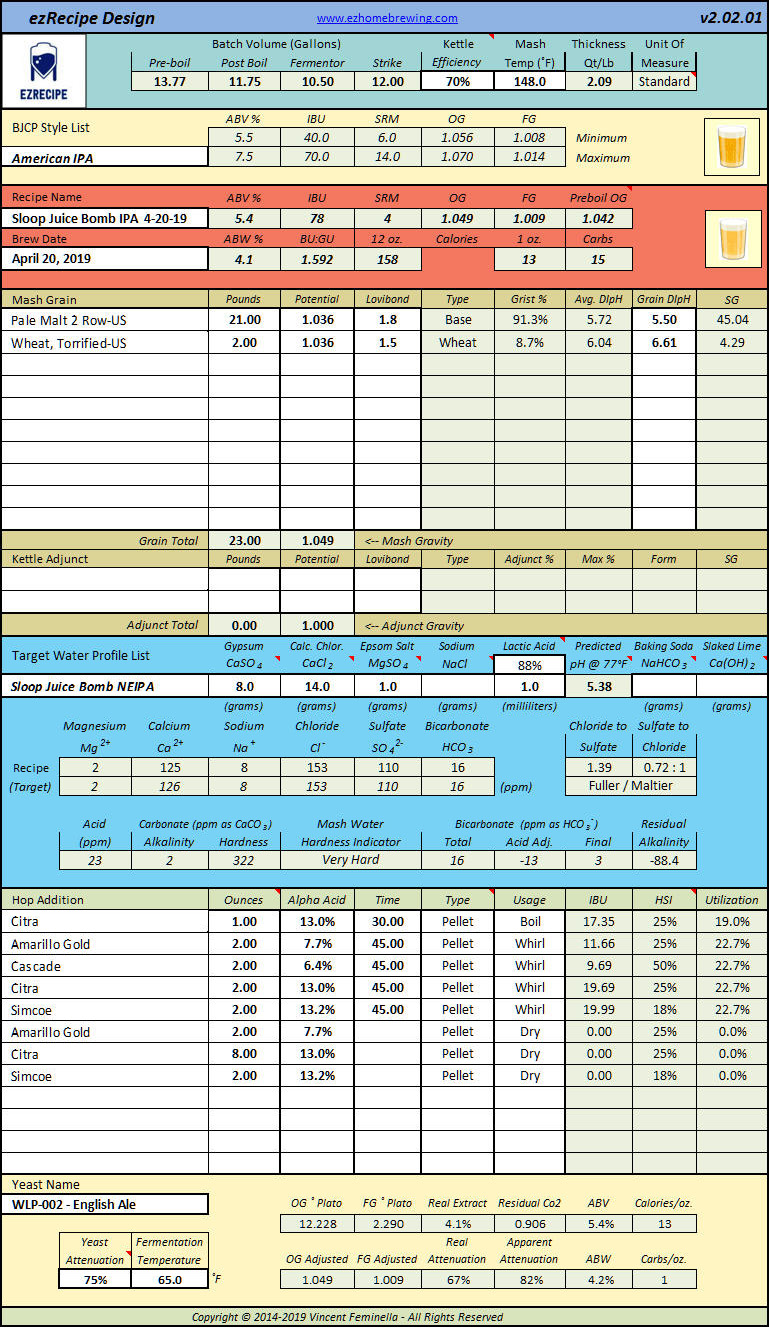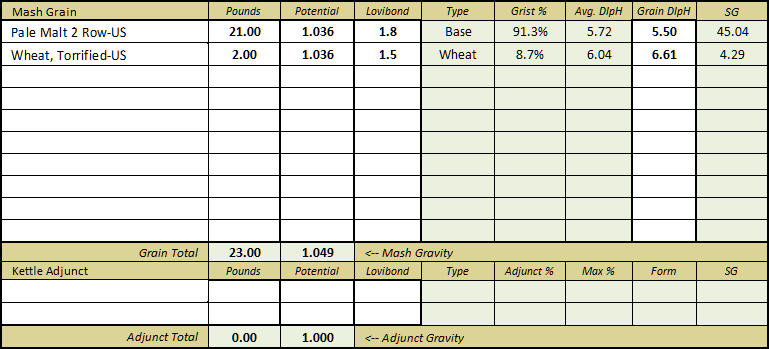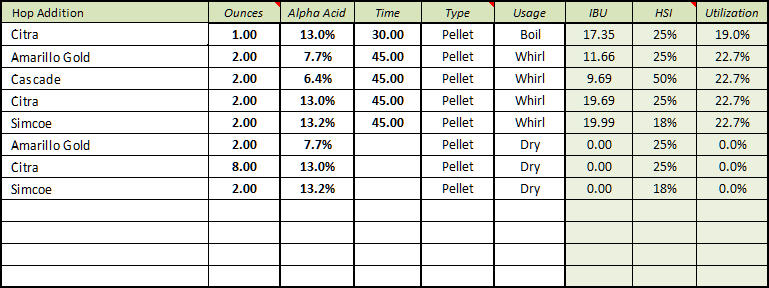Introducing ezRecipe Design for MS Excel
ezRecipe Design is the full-featured beer recipe design tool that is powerful and easy to use. Built from the ground up with the power and features needed to design the most challenging recipes. While letting you focus on brewing beer and not on learning complicated software setup. Now you can create, edit and save your recipes all in a single Excel spreadsheet. For added convenience, ezRecipes include all the ingredients, brewing notes, and settings needed to brew each recipe perfectly every time.
Select a perfect combination of grains, adjuncts and hops from a built-in list of ingredients. Then change the values as needed to match the ingredients you have on hand. Or choose to add your own ingredients to the built-in list for use when designing future brews. Either way, ezRecipe gives you the flexibility to save the ingredients and settings needed to brew that recipe again and again.
ezRecipe makes sharing recipes with other ezRecipe users easy to do. Export a favorite recipe as individual XML file then send it to another ezRecipe user to import. Once imported they will see the recipe just as you did when you exported it. The imported recipe can then be saved within their own copy of ezRecipe and selected for use at a later time.
With a click of the mouse recipes can easily be switched between metric and standard measurements. Recipe XML import and export functions support both metric and standard formats.
* Requires 32/64-bit version of Microsoft Excel 2010 or higher and 32/64-bit versions of Microsoft Windows 7, 8 or 10 with 3GB minimum memory. *
** Requires 64-bit version of Microsoft Excel 2016 or higher and a 64-bit version of Mac OS with 3GB minimum memory. **


Supports both 'kettle' and 'fermentor' efficiency calculation options.

Style guidelines provide recommended ranges for color, bittering and alcohol levels.

Recipes can stay within recommended ranges unless you're brewing something new.

Adjuncts are added to the boil kettle and have no affect on the mash.

Displayed of recipe water property, mash analysis and pH prediction.

Types are pellet, whole and extract used in boil, whirlpool and dry hop.

Attenuation rate and fermentation temperature influence final gravity.